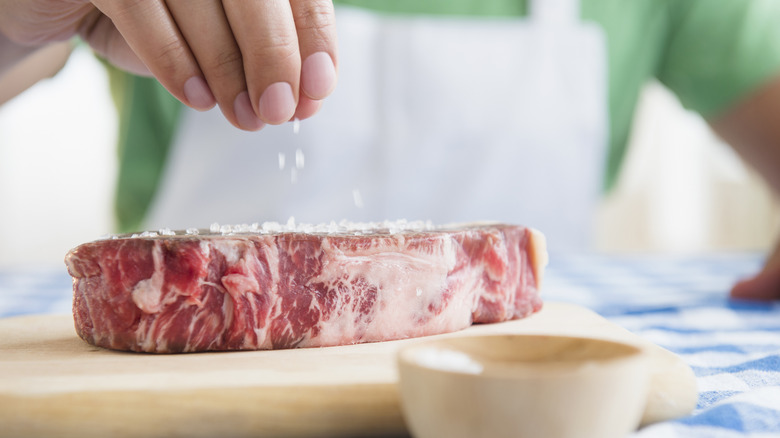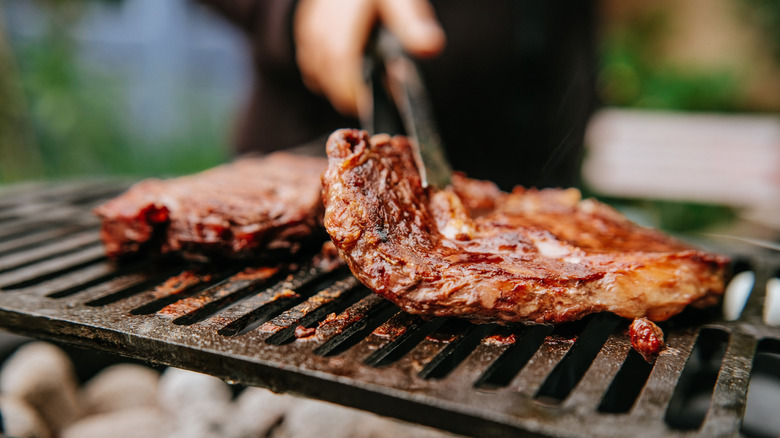The Scientific Reason Salt Tenderizes Meat
In the kitchen, no utensil brings out your inner Thor like a meat tenderizer. The heavy, bulbous steel hammer ridged in "teeth" on the head could serve as a murder weapon in the board game Clue, much less an implement to soften meat for cooking. It also reveals the lengths cooks go to tenderize meat — breaking down the connecting fibers and tissues — to make it easier for consumption and digestion. Otherwise, the slab of meat in question may remain stiff and tough enough to moonlight as a baseball glove.
Thor's wrath is just one way to tenderize, too. Other options include slow cooking, scoring with sharp objects, applying baking soda, marinating with certain fruits, and "velveting" in a mix of egg whites, cornstarch, and oil. Salt is a tried and true tenderizer, too, mingling with meat as far back as ancient Mesopotamia. That's because when the salt encounters the meat protein, it draws water from it, which, in turn, dissolves the salt before soaking back into the meat. From there, the absorbed saltwater locks in more moisture during cooking to create a tenderer, juicier result, aided further by breakdowns in the fibrous muscle proteins like actin, myosin, and collagen caused by the salt, bringing down a chemical hammer instead.
How salt helps meat while cooking
Why salt makes such an effective tenderizer can be discovered in the oven, on the stove or grill, and in the slow cooker. It starts by noticing how much smaller the piece of meat you are cooking is than when you started. The shrinkage occurs because water is expelled during cooking, drying the meat. This is because the collagen contracts in heat, squeezing out fluid and tightening to create a tougher piece of meat. The salt changes the equation somewhat, denaturing the protein fibers and keeping them from contracting as much during cooking, which then retains more water and makes for a tenderer texture and taste.
These positive effects are enhanced, to a certain degree, by using the right type of salt for tenderizing. This depends on whether it's a dry or wet brine — i.e., the salt alone or a salt-and-water mixture. With the first, use course or kosher sea salt with large enough grains to spread by hand or utensil on both sides of the meat to create even coverage. This kind of salt also sticks to the meat better, too. In a wet brine, thinner, table-style salt can work well, too, dissolving easily in the water like larger grains. In both cases, pure salt is ideal, as iodine and any other infused ingredients will absorb back into the meat and possibly mask the benefits of tenderizing.

